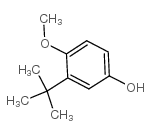| 结构式 | 名称/CAS号 | 全部文献 |
|---|---|---|
 |
2-叔丁基-4-羟基茴香醚
CAS:88-32-4 |
|
 |
4-羟基-3-叔丁基-苯甲醚
CAS:121-00-6 |